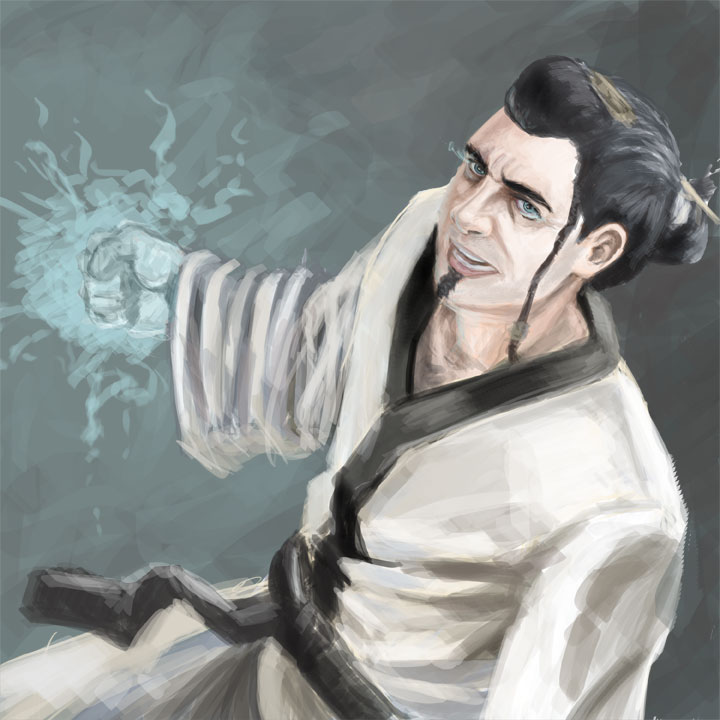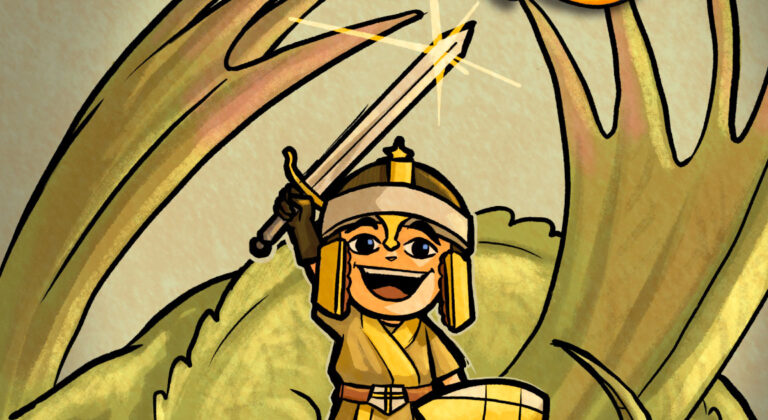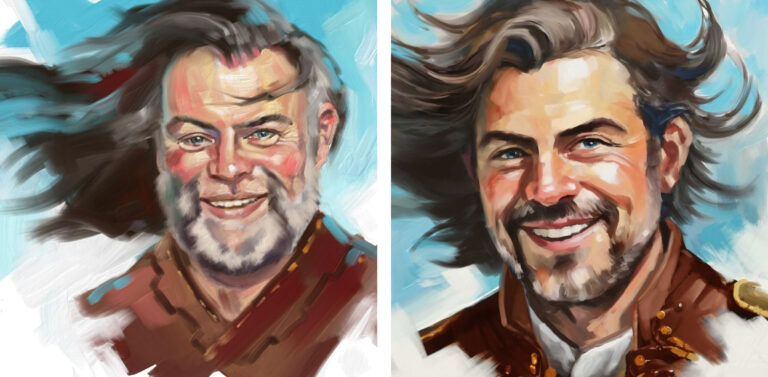On July 15, 1977, a small 6lb boy was born to a young couple who lived in the small town of Gibbons northeast of Edmonton. That boy is now 42! What in the what? How did I get here already. 42 and almost 19 years married (to the most amazing woman! I successfully married up.). I have a 14 year old daughter, a 12 year old son, 5 horses, 2 goats, 8(?) chickens, 4 cats, a german shepherd and an acreage!
15 years ago, when I became a full time entrepreneur, I could work a 15 hour day, get a few winks, rinse and repeat. Today, that recipe sounds like a catalyst for a near death experience. Just kidding. Also, boy oh boy, have my capacities reduced over the past 3-4 years. I don’t mean to paint a doom and gloom, getting older sucks, life is hard, woe is me picture here but I genuinely feel older. Things are just harder. Perhaps the rigorous schedule of 15 years of running my own business has started to chip away at me. Regardless, I am coming to a sober realization that my capacity is reduced.
At the same time my desire to grow in my creative abilities seems to be ratcheting up. I think this is a second aspect of growing older. With age comes a sense of self that wasn’t present 15 years ago as well as a healthy, objective view of where my skill level is. I’ve written and posted videos about the artist journey before. I recognize, more than ever, that this journey is life long. That ultimately it is futile. I will never reach my potential. I will never “arrive” as an artist. I believe this is one factor that drives many creatives. We search and strive for beauty. That striving motivates us. We might work on a piece and feel it is successful which produces a wellspring of joy. This experience is so satisfying that we desire to experience it again. More often, however, we find ourselves lost in the murk of the creative struggle where nothing seems to work and it feels like you couldn’t draw to save your life. That keeps us humble, searching and active in our creativity. As a deer pants for water, so we pant for growth and success as creatives.
Sometimes the context we find ourselves in betrays our creative journey. I’ve written about 100% effort being essential to growth and how that effort is modulated based on the context of our lives. Let me explain, at one point in your life, your 100% effort might be 50% of your actual potential capacity because life is beating you down. Maybe a loved one is sick, maybe you’re battling sickness, maybe there are money struggles etc. So many things can become challenges that stifle your capacity to apply 100% of your effort all the time.
Often in these situations what manifests in my life is unpleasant for me and those around me. Frustration sets in, then melancholy thoughts, then flat out, Eyore level, sullenness. “If it is a good day, which I doubt.”
So what can I (we) do about this? Go get a real job and stop whining. Yah, not likely. How about the following suggestions for starters:
- Revisit – Take a look at your work from 10 years ago.

Damn…ok that one is pretty good. But mostly because I used my kids as photo reference and I did everything right. Plus. I think I spent 30-40 hours on it. I don’t do that anymore these days. Maybe I need to slow down and be more deliberate again? Let’s look at a few more pieces.

Ok… not horrible. My digital painting skills show improvement.

Yes. I can see improvements when I look at a piece like this from 2009. I have made progress.

Yeesh. 11 years ago I was just getting into digital tools.
Well that was refreshing. Perhaps I am growing?!
2. Be Real – Realise that at a certain point growth becomes harder. Think of an athlete, a golfer for example. On their journey to the PGA going from a consistent 100 strokes to 90 is easy. Form 90 to 80, not too bad. To get from 80 – 70 strokes is absurdly difficult. 70 – 60 nie impossible. Of course their performance depends on many factors: The course, the weather, the time of day, humidity… etc. etc. This is a great analogy of life. On your best shooting day you might be playing in a storm or a crazy wind. Things outside of your control. To get from 80 – 70 in a vacuum of perfect conditions is difficult enough. In the glorious roiling torrent of a life well lived… you get my point.
3. Observe – Look around you and take stock of your life. Are you generally content? If you’re unsettled, is it your art that’s troubling you or is it something else? Are you taking care of yourself? Getting rest, exercise, eating well, tending to your spiritual needs? All of these factors are extremely important to be able to have a clear perspective in regards to your creative journey.
This tip is extremely important to me personally. There are many aspects of my life between family, friends, work and church. If I’m not careful I can end up neglecting myself. This usually leads to fatigue and contributes greatly to general discontent.
4. Consult – Talk with people you love and trust. There are 2 types of people you should include in your roster of confidants. Loved ones who will support and encourage you and mentors/objective peers who will tell you how it is. The former are great in times of struggle because they can comfort you and remind you what’s truly important. The latter are wonderful because they can be direct if they need to and may give you what you really need to move forward.
Both are essential to a healthy creative journey.
5. Accept – just plain accept things. Your situation is what it is, your skill level is what it is, the pressures of life around you are what they are. I have a saying that I think would make a great title and idea for a children’s book, it goes like this: Iti s what it is, it’s not what it’s not.
Once you accept your life context you can begin to assert change in your life.
6. Practice Gratitude – I don’t know about you but I can easily forget how blessed I am. I am fortunate enough to live here on this beautiful planet, in a peaceful country, on an amazing acreage with incredible people. I have a successful business I run with an amazing friend and I get to come home every day to my best friend and my beautiful kids. Yes. It’s a busy life. But man oh man. Is it beautiful.
Every time someone sits through an explanation of the two novels I’m writing I find myself feeling super thankful. For someone to care enough to listen to my crazy ideas for 10 min?! That’s amazing to me.
Give thanks to God for what you have. Thank the people around you for supporting you. Be appreciative.
7. Refocus – Write down some new goals. If you have written down goals before, revisit them, and take realistic stock of them. In doing so you may realize that some goals may be too grandiose or large to be realistically achievable in your current context.
This is something I run into often. I’m a highly ambitious creative. I want to write novels, graphic novels and children’s books. I want to have an art show of original paintings. I want to instruct and help new and struggling artists. I want to be an expert at drawing and painting the human figure. I want to create a series of paintings that draw people to the Love of Jesus. I want to create some animated work, outside of my day to day at my animation studio that I run with my business partner. No big deal right?
What generally happens to me is I end up with too many balls in the air. Things remain unfinished and my many initiatives stall out.
Putting plans down on paper has always seemed to help me. Establishing some deadlines is extremely helpful as well.
8. Amongst/Above all else – Do not give up. Don’t give in. Make healthy changes and move on. Your work is too important to give up on. I believe in you.
At Pulp Studios Inc. we’re working on writing a graphic novel about the Group of Seven for a client. The group of seven had a fascinating context in which they practiced their art. It may be worth a whole post on its own. But one thing I love in the research we’ve done was discovering the slogan they had painted on the side of the boxcar they rode in on their trips to Algoma in Ontario.
Ars Longa Vita Brevis – Art is Long Life is Short






